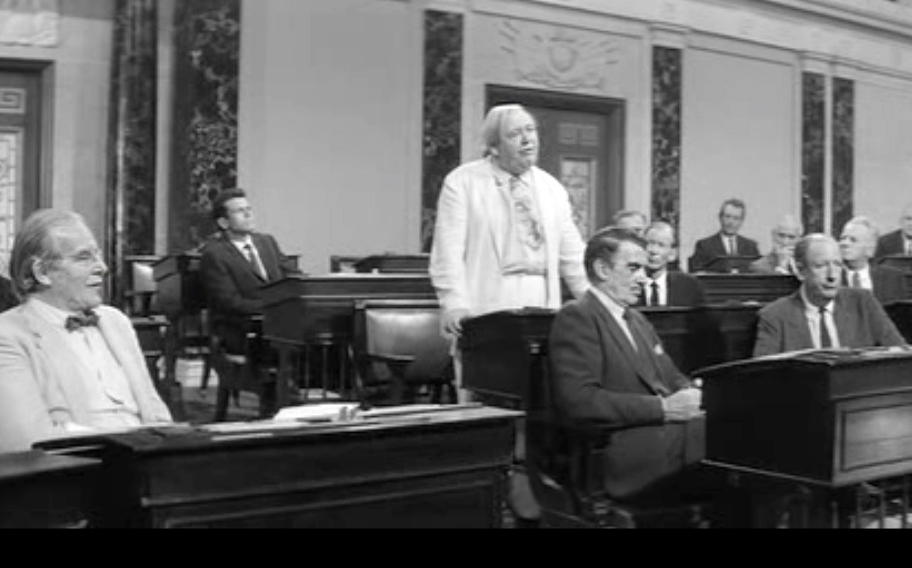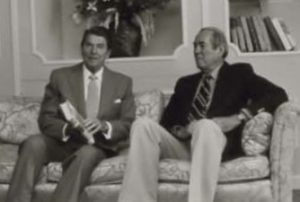
“Advise and Consent” by Allen Drury: Mandatory Viewing by Senators?
“And now for something completely different”
Apropos, of course, no current events in particular, I pass along a recommendation. It’s from a friend and fellow political junkie. “The entire United States Senate should be required to sit through an endless looped showing of Advise and Consent.” The 1962 film is based on Allen Drury’s Pulitzer-prize winning 1959 novel. In the unlikely event you do not remember the film, click here.”
I agree utterly. I must watch it again. It is not a lighthearted flick….
The Plot (excerpt from Wikipedia)
The President of the United States nominates Robert A. Leffingwell as Secretary of State. The second-term President, who is ill, has chosen Leffingwell on purpose. He does not believe that Vice President Harley Hudson—whom both he and others usually ignore—will successfully continue his foreign policy.
Leffingwell’s nomination is controversial. The United States Senate, using its advise and consent powers, must either approve or reject. Both parties are divided. Majority Leader Bob Munson loyally supports the nominee. Although also of the majority, President pro tempore Seabright “Seab” Cooley dislikes Leffingwell for personal and professional reasons. Cooley leads the opposition. Demagogic peace advocate Fred Van Ackerman is especially supportive. Munson repeatedly tells him not to aggravate the situation.
The Senate Foreign Relations Committee appoints a subcommittee, chaired by majority member Brigham Anderson of Utah, to evaluate the nominee. Anderson and his wife receive anonymous phone calls from Van Ackerman’s men. They warn that unless he reports favorably on Leffingwell, scandalous information about his past will appear. Colleagues attempt to counsel Anderson. But, unable to reconcile his duty and his secret, Anderson commits suicide.
* * *
The President is devastated over Anderson. Nevertheless, he tells the majority leader, he is dying. Leffingwell’s confirmation is vital. Munson criticizes Cooley for opposing the nominee. In the Senate Chamber Cooley apologizes for his “vindictiveness.” He will vote against the nominee, but will not ask others to follow. Vice President Hudson, as President of the Senate, holds a quorum call. Then he asks for the “Yeas and Nays.”
The vote is a tie. Everyone expects the Vice President to break it in the nominee’s favor. Suddenly, Secret Service agents enter the chamber and Hudson receives a message. He announces that he will not break the tie. The nomination fails. We learn that the President has died during the vote. As he leaves for the White House, Hudson tells Munson that he wants to choose his own nominee. Constitutionally the Vice President could not break the tie, since he was already President. By not voting, he nevertheless accomplishes his purpose.
The Cast
The cast for Drury’s novel is brilliant and memorable: Henry Fonda is Robert A. Leffingwell. Charles Laughton is Senator Seabright “Seab” Cooley of South Carolina. Don Murray is Senator Brigham “Brig” Anderson of Utah. Walter Pidgeon is Senate Majority Leader Robert “Bob” Munson. Peter Lawford is Senator Lafe Smith of Rhode Island (an approximation, I always thought, of the young Senator John F. Kennedy). Franchot Tone is President of the United States.
The Drury Novels

Allen Drury, like George Orwell, was a hero-novelist of my youth. Advise and Consent, his most famous book, was first in a hexology. Together, the six novels are a prescient backdrop to today’s politics. Churchill used to say that history doesn’t repeat, but human nature never changes. Drury’s setting was the time of the Cold War. Yet we see the same character types, and some of the exact mindsets, among politicians today.







One thought on ““Advise and Consent” by Allen Drury: Mandatory Viewing by Senators?”
I, too, have loved Advise and Consent for many years. Charles Laughton was great but I think Walter Pidgeon was my favorite character.
Gore Vidal’s The Best Man” was similar and also excellent.
Comments are closed.